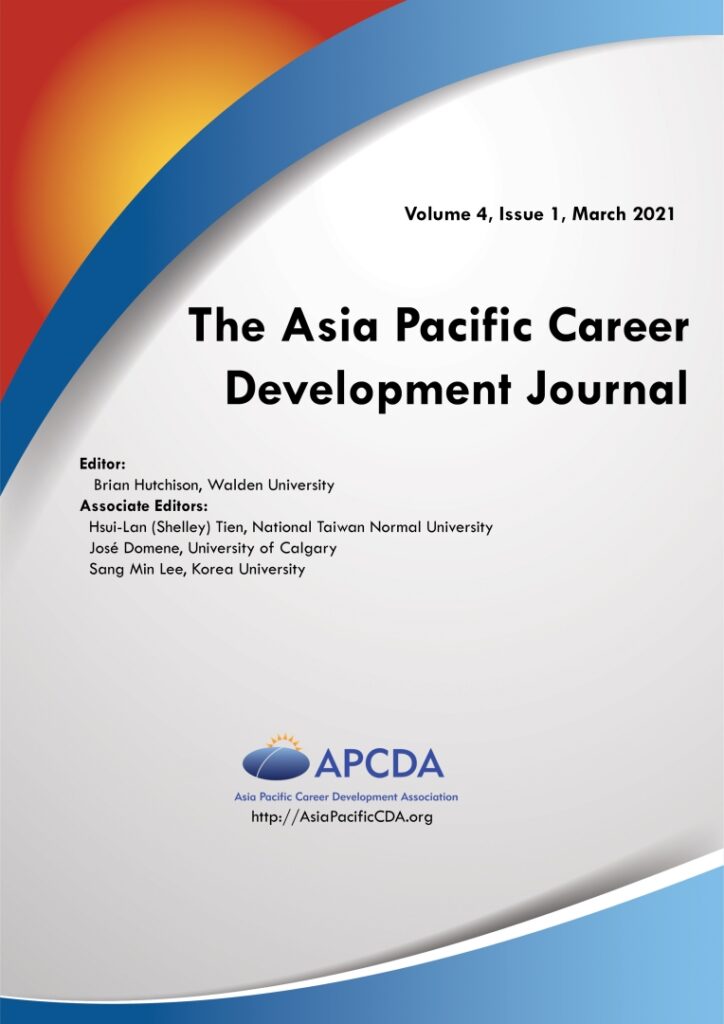The Asia Pacific Career Development Journal, Vol 4, No 1

Vol 4 No 1 (2021):
March 2021 Issue
Published: 2021-03-14
Editor's Note
Lead Article
Abstract: The objectives of this study are to introduce the concept of late-career planning and explore the use of a work design questionnaire to guide job crafting for older workers in late-career planning. This is a mixed methods study, comprising of a face-to-face interview, a questionnaire, and an online survey, administered to a total sampling size of 213 participants. Interview responses indicated that older workers desired late-career planning as a precursor to retirement planning. Findings and suggestions from this study lay the foundation for a relatively new concept of late-career planning in human resource practices. Late-career planning leads us to re-examine our views on career development through the lens of lifespan development theories and recognize that workers at different life stages have differing needs. The proposed job crafting tool aims to achieve a better fit between older workers and their jobs in their late-careers.
Empirical Article
Abstract: This article depicts the career development of China’s state-owned enterprise (SOE) workers. Following the life story approach, this article examines the changing meaning of “cadre identity,” a political identity recorded in Chinese SOE workers’ personnel files, on the career development under the context of China’s market reform. It shows that the importance of cadre identity on the SOE worker’s career development has gradually weakened, as the reform progresses. It is mainly due to the loss of cadre identity’s scarcity caused by the new institutions brought by various reform policies over time. An institutional culture with “guanxi” at its core is revealed through the analysis of a Chinese SOE worker’s career experience in Daqing Oilfield. The career development of workers in SOEs highly depends on the institutional culture, which encourages building guanxi network with the leaders in power in the condition that formal and informal institutions are always in unstable states under the reform.
Review Articles
Abstract: Economic and social trends, both domestic and global, have continued to have an impact on the educational development in Taiwan. With very limited natural resources, Taiwan has seen the need for developing a career guidance program to help increase the quality of human resources, and further its economic development. High school students have at least started projecting ideas about their future jobs and have a strong need to learn about themselves and the working world. Thus, the development of the taxonomic model of career development interventions plays a crucial role in helping to evaluate whether the interventions have been appropriately implemented. This paper aimed to exam the literature related to the structure of school career development interventions and yielded critical topics to discuss. Finally, the implication of research and practice were addressed.
The Asia Pacific Career Development Journal (APCDJ) is an international biannual publication dedicated to all career development and intervention related topics. It is the official journal of the Asia Pacific Career Development Association (APCDA; https://AsiaPacificCDA.orgThe journal welcomes submissions focused on, but not limited to, the following topics: career counseling, individual and organizational career development, work and leisure, career education, career coaching, and career management.
